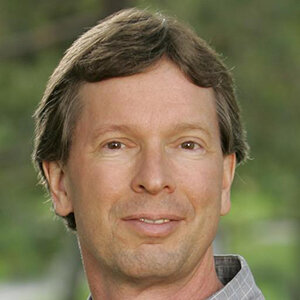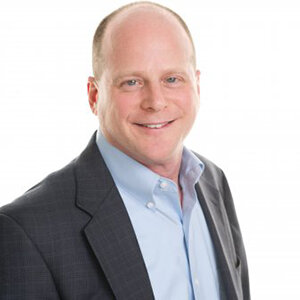Ron and Ed welcomed to the show the author of Ed's favorite book of 2019, The Case Against Reality, Professor Donald D Hoffman. (Or do they.) The show notes are below.
But first a bit more about Dr. Donald Hoffman…
Donald D Hoffman received a Bachelor of Arts degree in quantitative psychology from the University of California at Los Angeles (UCLA) in 1978 and earned his Doctorate of Philosophy in computational psychology at the Massachusetts Institute of Technology (MIT) in 1983 under David Marr and Whitman Richards. He was briefly a Research Scientist at the Artificial Intelligence Laboratory of MIT, and then became an assistant professor at the University of California at Irvine (UCI) in 1983. He has remained on the faculty of UCI since then, with a sabbatical during the 1995-1996 academic year at the Zentrum für Interdisziplinäre Forschung of Bielefeld University.
Ed’s Questions: Segment One
Welcome to The Soul of Enterprise: Business in the Knowledge Economy, sponsored by Sage, transforming the way we think and work so organizations can thrive. I’m Ed Kless, with my friend and co-host, Ron Baker. And folks, on today's show, we are very pleased to have our interview with Professor Donald Hoffman. Hey, Ron, how's it going?
Ron Baker
Very good, Ed. Looking forward to this.
Ed Kless
Yes. We’ve been marinating in Dr. Hoffman's work all morning, have a little bit of a headache, I must say. But that's okay. We will somehow persevere through this. Let me get the introduction done and over with so we can get right to the content here. Professor Donald D. Hoffman received a Bachelor of Arts degree in quantitative psychology from the University of California at Los Angeles and his doctorate in psychology in computational psychology from Massachusetts Institute of Technology. He was briefly a research scientist at the Artificial Intelligence Laboratory at MIT, and then became an assistant professor at the University of California at Irvine, where he remains on the faculty. Welcome to The Soul of Enterprise, Donald Hoffman.
So I have to give you the quick background story about how I came across your work. I'm almost certain that it was a reference that another one of our guests, Rory Sutherland [Episode #9 and Episode #267], who is the vice chair of Ogilvy and Mather, made to a TED talk that he saw you give, and I went through, and this is probably four years ago, loved it, went out and purchased your book, Visual Intelligence: How We Create What We See, and was so overwhelmed, and showed my daughter this, the picture of the thing called the ripple, which just absolutely blows me away every time I look at it, it is a two dimensional image, that when you look at it, you cannot but see it in three dimensions. And it is a wild, wild thing. So that was my quick introduction. I think it's on page two of this book. But I want to ask you a little bit about where did you come across this ripple? What, the background story about how you got to this visual intelligence piece before we get into the newer work of yours?
No, that would be very bad. So that image, the ripple, a computer would just see that as a 2d image because that's what a computer does at least initially, right?
So this led to your work on visual intelligence and then the your later work gets you to The Case Against Reality: Why Evolution Hid the Truth from Our Eyes, which is where I think we want to spend most of our time talking to you about. Before we start to get into the details of it, what was the transition like? You were coming from visual perception, then all of a sudden, the ideas of consciousness came into being? I'm trying to make that connection.
I love this, you write: “Cats can't do calculus, monkeys can't do quantum theory. So why do we assume that homo sapiens can demystify consciousness? Perhaps we don't need more data, perhaps what we need is a mutation that lets us understand the data that we have.”
Perhaps one of the more bizarre things that I came across after reading your work, that at least made me stop and go, hmm, maybe there's nothing to this, but there was a position that was put forward that said, perhaps people with advanced autism are an evolutionary step forward in their ability to process some of this stuff. And when you hear that initially that just seems ridiculous. But I guess it's theoretically possible that they are just perceiving things differently than we are.
Sure. Wow, this is just fascinating stuff. Thank you, Professor Hoffman, we are at our first break already, I can't believe it.
Ron’s Questions: Segment Two
Welcome back, everybody. We're here with Donald Hoffman, the author of The Case Against Reality: Why Evolution Hid the Truth from Our Eyes. Don, as we were talking about during the break, this book just really makes you think, and I love some of the metaphors you use, like the email on your desktop: it's there to hide the truth from you, and help you do useful things. And you say that's what evolution has done. And then you wrote this, you said, “The truth won't make you free, it will make you extinct.” And that's kind of where you begin to talk about the Fitness-Beats-Truth (FBT) theorem. Can you explain that?
You mentioned eye candy, and you have a beautiful discussion about beauty, and how it's not about objective reality. It's about fitness. And I just thought that was great. I remember, Ed mentioned Rory Sutherland, we had him on, and he says this all the time, that the peacock uses its tail as a way to signal and this is why women chase guys with Ferraris, not truck drivers.
That's amazing. The other thing I have to ask you about because it’s just mind blowing. If I'm sitting here looking at a spoon, and I turn away, is it still there? And you wrote well, “something is there, but it's not a spoon, and it's not in space and time”?
You even anticipate some skeptical questions, like, “If I don't see reality, why does my camera see what I see?” Or, “How does a driverless car work”? Can you explain that, because I can see people raising those types of objections?
Don, this is great, we’re up against our break. It’s like being in a graduate seminar. I really appreciate this.
Ed’s Questions: Segment Three
The book is The Case Against Reality: Why Evolution Hid the Truth from Our Eyes. The author is Professor Donald D. Hoffman, who is with us today on The Soul of Enterprise. And, Don, I want to ask you now about the concept of consciousness. You write: “All attempts at a physical theory of consciousness have failed. They have produced no scientific theory and no plausible idea of how to build one. The failure, I think, is principled, you simply cannot cook up consciousness from unconscious ingredients.”
So the assumption that neurons create, or that physical systems like the silicon circuits, create consciousness or could create consciousness is wrong from the get go, because we're assuming those things have an objective reality, and they don't.
It's funny, a high school friend of mine just posted an article last week from those two scientists that you mentioned about the microtubules. So thanks, you already covered the question that I had for you around that. So then you go the other way and say, okay, well, then what we need to do is we need to argue that consciousness is the foundational building block, and that it is conscious units that create more consciousness. Do I have that sort of right?
The book came out about two years ago [2019], at the end of the book you mentioned that you're starting these calculations with your team. I assume that since you're still talking to us two years later about it, you haven't falsified it yet?
Well, I've got only about a minute left with you and want to ask you what might be a deep question. And if it's out of bounds, please let me know. Has your research and work changed anything about how think about the divine in any way?
Wow, Amazing stuff. Thank you so much. Ron's going to take you the rest of the way home in the last segment. But I just wanted to thank you for appearing on the show today. It's been great to talk to you and a deep honor.
Ron’s Questions: Segment Four
Welcome back, everybody. We're here with Donald Hoffman, the author of The Case Against Reality: Why Evolution Hid the Truth from Our Eyes, which we highly recommend; I think it was Ed's number one book from last year. And Don, I wanted to ask you, on this consciousness topic, you seem to be fairly optimistic, or believe, that Artificial Intelligences can create real consciousness?
We've had George Gilder on the show [Episode #207], and he wrote Life After Google. He's an economist, he's got an information theory of capitalism which I find absolutely fascinating, and talks about some of the same things you do, some of your work overlaps. And I just wanted to get your reaction to this because he doesn't think that AI can, or could, create consciousness, and he wrote this: “The blind spot of AI is that consciousness does not emerge from thought; it is the source of it. The Oracle programmer must be outside.”
This is a business show, so I wanted to ask you about this because I found this fascinating in your book as well. You consulted, I think, for a jeans company, and you were an expert witness for T-Mobile. And you're talking about color psychology and how different colors conjure up different emotions and things like that. And I guess you coined the term “chromatures,” which give a richer structure, and trigger more precise reactions. You give the example of the magenta, T-Mobile's brand color. And I thought of the Tiffany's blue box, or whatever. Do you see this being used more in business and advertising and marketing?
You have a great picture in the book of a gal wearing jeans and both half's are different. And it's just fascinating. How's the book been received, Don?
Have you ever had a debate, like with a Michael Shermer, some type of skeptic about it?
[See YouTube podcast with Michael Shermer and Donald Hoffman here].
Science advances by dissent, not consensus, right?
Don, in the last half minute, do you got another book coming out, or in the works?
Well, if you do put out that book we'd love to have you back on to discuss that one. We're big fans. So Don, thank you so much for coming on the show. This has been an honor, as Ed said, and I really enjoyed the book and best wishes with your research. It is fascinating. Ed, what's on store for next week.
Ed Kless
Next week, Ron, we're going to talk about “In Search of Relationship Value.”
Ron Baker
Awesome. I will see you in 167 hours.
Bonus Content is Available As Well
Did you know that each week after our live show, Ron and Ed take to the microphone for a bonus show? Typically, this bonus show is an extension of the live show topic (sometimes even with the same guest) and a few other pieces of news, current events, or things that have caught our attention.
This week was bonus episode 329: “It's Por-SCHE, not Porsh”
Here are a few links discussed:
Costco lifts minimum wage above Amazon or Target to $16 per hour | Reuters
Power Industry Pleads for Priority COVID-19 Testing, PPE for Mission-Essential Workers
Click the “FANATIC” image to learn more about pricing and member benefits.










